Our Health Library information does not replace the advice of a doctor. Please be advised that this information is made available to assist our patients to learn more about their health. Our providers may not see and/or treat all topics found herein.
Latching
Follow these steps to help your baby get a proper latch on your breast.
Get set up.
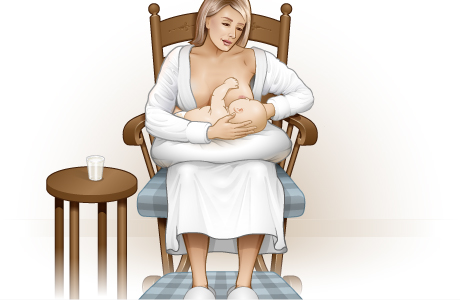
Find a position that's comfortable for both you and your baby. Have a glass of water nearby. Sit up with your back supported. Use one or more pillows to provide extra support for your arms and for the baby's position. Using a footstool will help you keep a good position.
Position your baby.
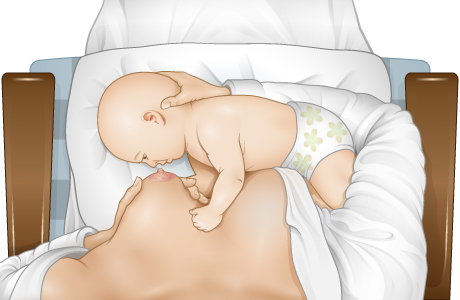
Make sure the baby's head and body are lined up straight. For this position, you and your baby should be tummy to tummy. Your baby's nose should be right in front of your nipple.
Support your breast.
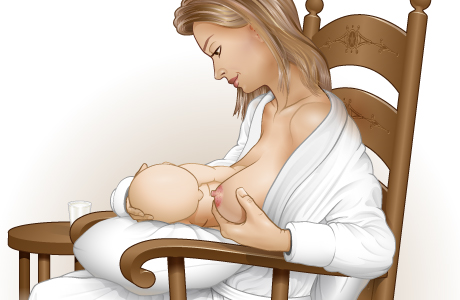
Support and narrow your breast with one hand using a "U hold," with your thumb on the outer side of your breast and your fingers on the inner side. You can also use a "C hold," with all your fingers below the nipple and your thumb above it. Try the different holds to get the deepest latch for whichever breastfeeding position you use. Your other arm should be behind your baby's back, with your hand supporting the base of the baby's head. Position your fingers and thumb to point toward your baby's ears.
Baby opens mouth.
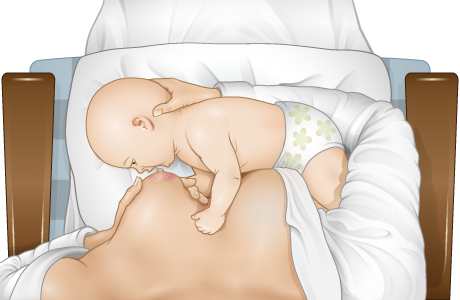
You can touch your baby's lower lip with your nipple to get your baby's mouth to open. Wait until your baby opens up really wide, like a big yawn. Then be sure to bring the baby quickly to your breast—not your breast to the baby. As you bring your baby toward your breast, use your other hand to support your breast and guide it into your baby's mouth.
Baby latches on.
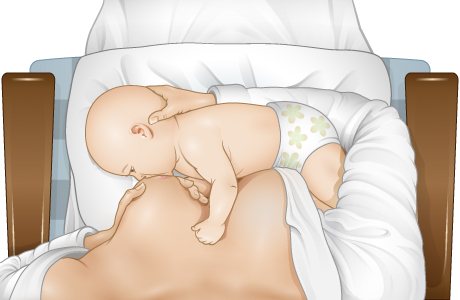
Both the nipple and a large portion of the darker area (areola) around the nipple should be in the baby's mouth. The baby's lips should be flared outward, not folded in (inverted).
Be sure the baby is latched on correctly.
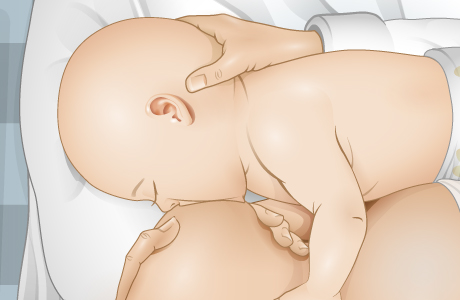
Listen for a regular sucking and swallowing pattern while the baby is feeding. If you cannot see or hear a swallowing pattern, watch the baby's ears. They will wiggle slightly when the baby swallows. If the baby's nose appears to be blocked by your breast, tilt the baby's head back slightly, so that just the edge of one nostril is clear for breathing.
Cradle and breastfeed your baby.
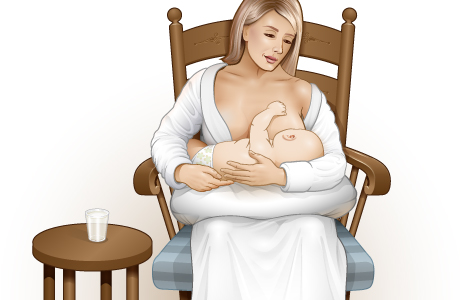
After your baby is latched, you can usually remove your hand from supporting your breast and use it to cradle under your baby. Now just relax and breastfeed your baby.
Break the latch when baby is finished.
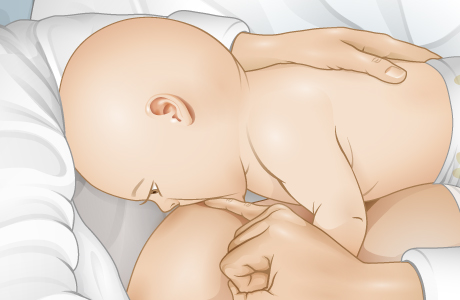
When your baby is done breastfeeding, you can break the latch by using your pinky finger. Place one finger into the corner of your baby's mouth. This will gently break the seal. You can also use your pinky to break the latch if you feel pain after your baby first latches on. Then you can start again.
Current as of: July 15, 2025
Author: Ignite Healthwise, LLC Staff
Clinical Review Board
All Ignite Healthwise, LLC education is reviewed by a team that includes physicians, nurses, advanced practitioners, registered dieticians, and other healthcare professionals.
This information does not replace the advice of a doctor. Ignite Healthwise, LLC disclaims any warranty or liability for your use of this information. Your use of this information means that you agree to the Terms of Use and Privacy Policy. Learn how we develop our content.
To learn more about Ignite Healthwise, LLC, visit webmdignite.com.
© 2024-2025 Ignite Healthwise, LLC.


